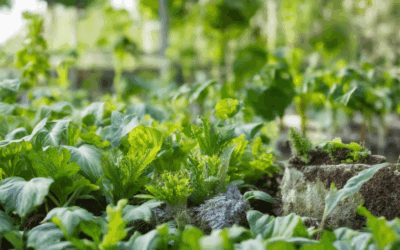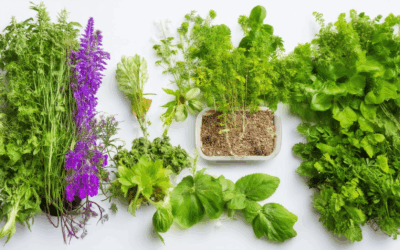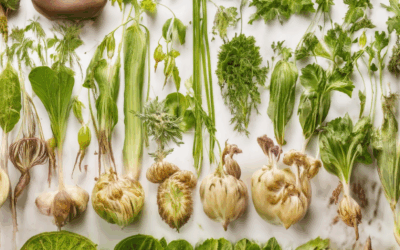Gardening has long been a pastime that brings people closer to nature, but as our awareness of environmental issues grows, many are seeking ways to make their gardening practices more sustainable. Eco-conscious gardening supplies are becoming increasingly popular, offering not only environmental benefits but also healthier alternatives for both gardens and gardeners. In this guide, we’ll explore the best eco-friendly gardening supplies, key features to look for, and practical tips to incorporate sustainable practices into your gardening routine. By choosing eco-friendly gardening tools and products, you can reduce your carbon footprint while enhancing the health of your plants and soil. Whether you’re new to eco-conscious gardening or looking to refine your existing practices, this article will provide the insights you need to make informed decisions for a greener future.
Key Takeaways
– Prioritize sustainable materials: Choose tools and supplies made from renewable resources like bamboo, wood, or metal to minimize environmental impact.
– Look for certifications: Seek out products certified by organizations like USDA Organic or Fair Trade to ensure eco-friendly practices and ethical labor standards.
– Opt for recyclable packaging: Select suppliers who use biodegradable or recyclable packaging to reduce waste.
– Support local and ethical brands: Back companies with strong sustainability missions and consider local businesses for shorter supply chains.
– Adopt seasonally appropriate plants: Choose plants suited to your region’s climate to reduce the need for energy-intensive practices like heated greenhouses.
– Invest in durable and repairable items: Purchase high-quality, long-lasting products to reduce waste and lower replacement frequencies.
– Use composting tools: Utilize compost bins and aerators to manage kitchen scraps and enhance soil fertility.
– Implement water conservation devices: Install drip irrigation systems and rain barrels to reduce water usage efficiently.
– Switch to biodegradable mulch: Replace synthetic mulch with natural, eco-friendly alternatives to suppress weeds and improve soil health.
– Select sustainable fertilizers: Opt for natural options like compost or worm castings to nourish plants without harmful chemicals.
– Plant heirloom and native seeds: Support biodiversity and reduce maintenance with seeds suited to your region’s climate.
– Practice organic pest control: Use natural methods like ladybugs or diatomaceous earth to protect plants safely.
– Apply cover crops and blankets: Protect soil from erosion and regulate temperatures with organic covers.
– Incorporate native plants: Reduce water needs and support local wildlife with plants adapted to your area’s ecosystem.
– Use eco-friendly containers: Grow plants in recycled materials or untreated wood to minimize plastic use.
– Enhance soil health with cover crops: Improve soil structure and prevent erosion with clover or rye.
By integrating these strategies, you can create a sustainable garden that benefits both the environment and your harvest. Explore our sustainable gardening collection or local supplier directory to find the right tools and supplies for your eco-conscious gardening efforts.
Best Eco-Conscious Gardening Supplies
Eco-conscious gardening is about minimizing environmental impact while maximizing productivity. Here’s a curated list of the best sustainable gardening supplies to help you create an eco-friendly garden:
- Tools and Equipment:
- Bamboo-handled tools – Durable and sustainable alternatives to traditional metal tools.
- Solar-powered garden tools – Reduce reliance on fossil fuels with energy-efficient options.
- Compostable mulch – Made from renewable resources to retain soil moisture and suppress weeds.
- Biodegradable plant pots – Made from natural fibers that break down quickly and don’t harm the environment.
- Organic fertilizers – Phosphate-free options that promote healthy plant growth without harmful chemicals.
- Planting Materials:
- Heirloom and open-pollinated seeds – Preserving biodiversity and ensuring genetic diversity.
- Organic soil amendments – Like compost and worm castings to enrich your soil naturally.
- Natural mulches – Such as wood chips or straw to protect soil and suppress weeds.
- Non-GMO plants – Ensuring your garden doesn’t contribute to genetic drift that could harm wild populations.
- Watering Solutions:
- Drip irrigation systems – Efficient water delivery that minimizes waste.
- Rainwater harvesting – Collects and stores water for reuse during dry seasons.
- Self-watering containers – Plants thrive with consistent moisture without frequent watering.
- Composting and Recycling:
- Worm composting bins – Break down kitchen scraps into nutrient-rich compost.
- Compostable bags – For separating kitchen waste before disposal.
- Mulching programs – Continuous application of organic matter to improve soil health.
By using these eco-conscious gardening supplies, you can create a sustainable garden that thrives while protecting the planet. Remember to always opt for natural and organic solutions whenever possible to maintain harmony with nature.
For more tips and resources on sustainable gardening, visit Old Seed and explore our comprehensive guide to eco-friendly gardening practices.
Best Eco-Conscious Gardening Supplies
Eco-conscious gardening is about minimizing environmental impact while maximizing productivity. Here’s a curated list of the best sustainable gardening supplies to help you create an eco-friendly garden:
- Tools and Equipment:
- Bamboo-handled tools – Durable and sustainable alternatives to traditional metal tools.
- Solar-powered garden tools – Reduce reliance on fossil fuels with energy-efficient options.
- Compostable mulch – Made from renewable resources to retain soil moisture and suppress weeds.
- Biodegradable plant pots – Made from natural fibers that break down quickly and don’t harm the environment.
- Organic fertilizers – Phosphate-free options that promote healthy plant growth without harmful chemicals.
- Planting Materials:
- Heirloom and open-pollinated seeds – Preserving biodiversity and ensuring genetic diversity.
- Organic soil amendments – Like compost and worm castings to enrich your soil naturally.
- Natural mulches – Such as wood chips or straw to protect soil and suppress weeds.
- Non-GMO plants – Ensuring your garden doesn’t contribute to genetic drift that could harm wild populations.
- Watering Solutions:
- Drip irrigation systems – Efficient water delivery that minimizes waste.
- Rainwater harvesting – Collects and stores water for reuse during dry seasons.
- Self-watering containers – Plants thrive with consistent moisture without frequent watering.
- Composting and Recycling:
- Worm composting bins – Break down kitchen scraps into nutrient-rich compost.
- Compostable bags – For separating kitchen waste before disposal.
- Mulching programs – Continuous application of organic matter to improve soil health.
By using these eco-conscious gardening supplies, you can create a sustainable garden that thrives while protecting the planet. Remember to always opt for natural and organic solutions whenever possible to maintain harmony with nature.
For more tips and resources on sustainable gardening, visit Old Seed and explore our comprehensive guide to eco-friendly gardening practices.
How to Choose Eco-Conscious Gardening Supplies
Eco-conscious gardening goes beyond just planting seeds—it’s about making sustainable choices at every step. Here’s how to select gardening supplies that align with your commitment to the environment:
- Sustainable Materials:** Look for gardening tools and supplies made from renewable resources or recycled materials. Bamboo, wood, and metal are excellent options.
- Certifications:** Seek products certified by organizations like USDA Organic or Fair Trade. These certifications ensure eco-friendly practices and ethical labor standards.
- Recyclable Packaging:** Opt for suppliers who use biodegradable or recyclable packaging to minimize waste.
- Local and Ethical Brands:** Support companies with strong sustainability missions. Local businesses often have shorter supply chains, reducing environmental impact.
- Seasonal and Climate-Appropriate Plants:** Choose plants suited to your region to reduce the need for heated greenhouses or other energy-intensive practices.
- Durable and Repairable Items:** Invest in high-quality, long-lasting products to reduce waste and lower the frequency of replacements.
To find these supplies, visit our sustainable gardening collection or explore our local supplier directory . Our partners are committed to eco-friendly practices and ethical sourcing, making them trusted allies in your journey toward a greener garden.
How to Choose Eco-Conscious Gardening Supplies
Eco-conscious gardening goes beyond just planting seeds—it’s about making sustainable choices at every step. Here’s how to select gardening supplies that align with your commitment to the environment:
- Sustainable Materials:** Look for gardening tools and supplies made from renewable resources or recycled materials. Bamboo, wood, and metal are excellent options.
- Certifications:** Seek products certified by organizations like USDA Organic or Fair Trade. These certifications ensure eco-friendly practices and ethical labor standards.
- Recyclable Packaging:** Opt for suppliers who use biodegradable or recyclable packaging to minimize waste.
- Local and Ethical Brands:** Support companies with strong sustainability missions. Local businesses often have shorter supply chains, reducing environmental impact.
- Seasonal and Climate-Appropriate Plants:** Choose plants suited to your region to reduce the need for heated greenhouses or other energy-intensive practices.
- Durable and Repairable Items:** Invest in high-quality, long-lasting products to reduce waste and lower the frequency of replacements.
To find these supplies, visit our sustainable gardening collection or explore our local supplier directory . Our partners are committed to eco-friendly practices and ethical sourcing, making them trusted allies in your journey toward a greener garden.
Key Features of Eco-Conscious Gardening Supplies
- Composting Tools: Eco-conscious gardening often starts with composting. Look for compost bins, compostable kitchen scraps containers, and tools like compost aerators to get started.
- Water Conservation Devices: Water-saving devices like drip irrigation systems and rain barrels help reduce water usage while maintaining plant health.
- Biodegradable Mulch: Instead of synthetic mulch, consider using biodegradable options made from natural fibers to suppress weeds and retain soil moisture.
- Sustainable Fertilizers: Opt for natural fertilizers such as compost, worm castings, or fish emulsion to nourish your plants without harming the environment.
- Heirloom and Open-Pollinated Seeds: Plant seeds that have been preserved through generations, as they are more resilient and diverse, supporting biodiversity and sustainable food production.
- Organic Pest Control: Use natural methods like ladybugs, organic pesticides, or diatomaceous earth to protect your plants from pests without toxic chemicals.
- Cover Crops and Organic Covers: Protect your garden soil with organic covers like mulch or floating row covers to retain moisture, suppress weeds, and protect plants during colder months.
- Native Plants: Incorporate native plants suited to your region’s climate to reduce water needs and support local wildlife and ecosystems.
- Eco-Friendly Containers: Use containers made from recycled materials or untreated wood to grow your plants, minimizing plastic use and exposure to harmful chemicals.
- Soil Health Enhancers: Add cover crops like clover or rye to improve soil structure and prevent erosion, contributing to long-term soil health.
Key Features of Eco-Conscious Gardening Supplies
Eco-conscious gardening supplies focus on minimizing environmental impact while maximizing gardening efficiency. Here are the key features:
- Composting Tools: Products designed for composting, such as compost bins and aerators, help reduce kitchen waste and enhance soil fertility.
- Water Conservation Devices: Drip irrigation systems and rainwater harvesting tools help conserve water, a critical resource in many regions.
- Biodegradable Mulch: Unlike traditional plastic mulch, biodegradable options break down naturally, reducing landfill waste and enhancing soil health.
- Sustainable Fertilizers: Natural fertilizers like compost and worm castings promote soil health without the need for synthetic chemicals.
- Heirloom and Native Seeds: Planting seeds that are heirloom or native to your region supports biodiversity and requires less water and maintenance.
- Organic Pest Control: Products like organic insecticides and natural predator habitats help control pests without harming the environment.
- Cover Crops and Blankets: These materials protect soil from erosion and help regulate temperature and moisture levels for plants.
- Local and Ethical Sourcing: Many eco-conscious suppliers source materials locally, reducing transportation emissions and supporting regional economies.
- Education and Community Resources: Suppliers often provide educational materials and tools to help gardeners adopt sustainable practices effectively.
By using these features, eco-conscious gardening supplies contribute to a healthier planet while still yielding abundant harvests. For more information on sustainable gardening practices and the best tools to get started, visit our sustainable gardening guide .








0 Comments